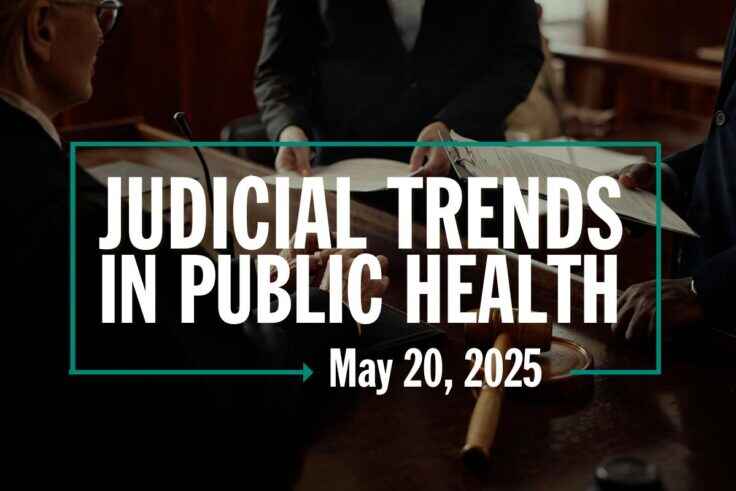Overview
1:00 – 2:30 p.m. ET | January 19, 2021
Twenty-twenty was one of the most dynamic years in public health law and policy in modern history due not only to the unprecedented COVID-19 pandemic but also the substantial shifts in national and state politics leading up to and after the Presidential election, as well as a re-constituted U.S. Supreme Court. Some of the most sensational developments are seen in the array of judicial decisions monitored and reported throughout the year in the Network’s Judicial Trends monthly e-newsletter.
Join Network attorneys as they highlight their top choices for pivotal, influential judicial decisions in 2020 on topics including emergency legal preparedness, religious freedoms, reproductive rights, food insecurity, health justice, and the future of the ACA. More than just a “year in review,” this session will help you forecast judicial trends in public health law for 2021.
View/download the Presentation Slides
Moderator:
- James G. Hodge, Jr., JD, LLM, Director, Network for Public Health Law–Western Region Office; Peter Kiewit Professor of Law, Sandra Day O’Connor College of Law, Arizona State University
Presenters:
- Leila Barraza, JD, MPH, Senior Consultant, Network for Public Health Law–Western Region Office; Associate Professor, Mel and Enid Zuckerman College of Public Health, University of Arizona
- Kathleen Hoke, JD, Director, Network for Public Health Law–Eastern Region Office; Professor, University of Maryland Carey School of Law
- Kerri McGowan Lowrey, JD, MPH, Deputy Director, Network for Public Health Law–Eastern Region Office
- Jennifer L. Piatt, JD, Senior Attorney, Network for Public Health Law–Western Region Office; Research Scholar, Sandra Day O’Connor College of Law, Arizona State University
- Mathew R. Swinburne, JD, Associate Director, Network for Public Health Law–Eastern Region Office
- Brooke Torton, JD, Senior Staff Attorney, Network for Public Health Law–Eastern Region Office
- Sarah Wetter, JD, MPH, Senior Consultant, Network for Public Health Law–Western Region Office; Law Fellow, O’Neill Institute for National and Global Health Law, Georgetown University Law Center
You may qualify for CLE credit. ASLME is an approved provider of continuing legal education credits in several states ASLME will also apply for CLE credits in other states upon request. An email from ASLME regarding CLE credits will be sent to attendees following the webinar.

